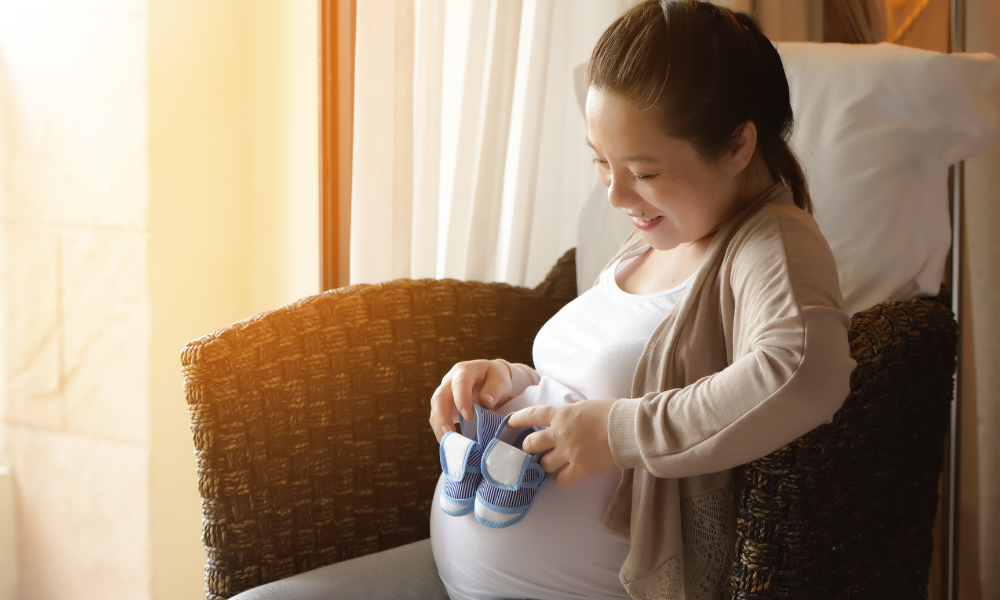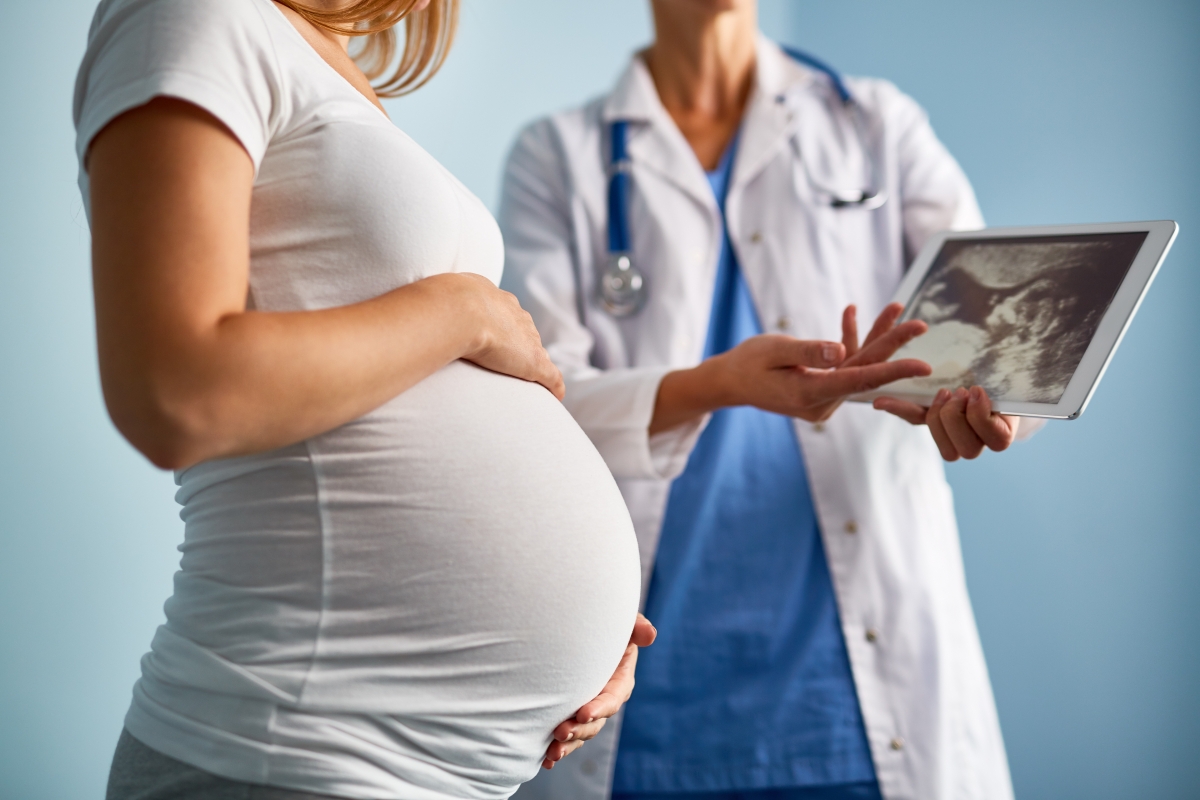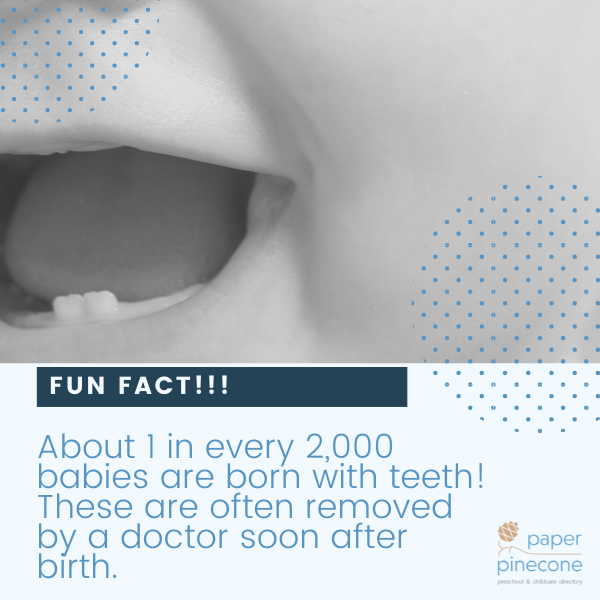6 Common Aches and Pains To Expect During Pregnancy

Published Date: 07/05/21
Typical pregnancy symptoms and how you can get relief
For many women, pregnancy is one of the most notable events of their lives. You may experience strong feelings about it, and that’s perfectly normal. Some women are filled with excitement and joy, others are more nervous and scared, and many go through a range of emotions, at times feeling elated about the baby you’re carrying and others sad at the idea of giving up your old life. Irritability and anger are also common - those major hormonal changes can do a number on your emotions.
In addition to the hormonal changes, you’ll obviously experience physical changes as well during your pregnancy. Carrying a child is demanding on your body and those changes may lead to aches and pains you weren’t expecting. You’re probably familiar with morning sickness, but did you know that dental problems are common during pregnancy? Perhaps not.
That’s because for many women, the relatively minor aches and pains they experienced during pregnancy are quickly forgotten about once they give birth as their focus changes from being pregnant to being a mom and caring for a newborn.
DON’T MISS: THIS DRUG CAN TREAT SEVERE POSTPARTUM DEPRESSION
While most of the aches and pains you may experience during pregnancy are minor nuisances, it’s helpful to be emotionally and mentally prepared. It’s also helpful to understand what’s common so you’re not alarmed if these common aches and pains arise during your pregnancy.
What aches and pains are common during pregnancy?
From back pains to leg cramps, read more below to find out about the most prevalent aches and pains you may endure during your pregnancy, as well as the steps you can take for a more comfortable pregnancy journey.
1. Pregnancy Headaches
Pregnancy headaches can happen anytime, whether during your first, second, or third trimester. They’re often caused by your body’s tension, hormonal changes, constipation, or congestion. Relaxation techniques can be a good place to start to help ease some pregnancy headaches. Get some rest by lying or sitting quietly in a low-lit room. Relax your neck, back, and shoulders while closing your eyes. If possible, place an ice pack on the back of your neck or your forehead to alleviate the ache. It’s also crucial that you take proper nutrition and adequate water intake to ease the symptoms of pregnancy headaches.
READ ABOUT THE FASCINATING HISTORY OF SLEEP TRAINING.
If the headache doesn’t go away, it’s important to consult with your doctor before taking any medication. Over-the-counter pain relievers can impact your pregnancy and recommendations may be different from one trimester to the next.

2. Dental pain and sensitivity during pregnancy
You might be surprised how pregnancy can also affect your mouth and dental health. During your second trimester, you may notice how your gums become oversensitive and tend to bleed easily every time you floss or brush your teeth. About half of pregnant women experience pregnancy gingivitis, a mild form of gum disease. Some may also experience gum redness, swelling, and inflammation on the gums or a small nodule that bleeds when you brush. In rare cases, some women may experience nose bleeds.
BEWARE OF COUNTERFEIT CAR SEATS – READ THIS NOW
This occurs because your blood circulation and hormonal changes make your gums easily tender and sensitive to the bacteria in plaque. Even so, it’s vital that you still keep on flossing and brushing your teeth daily to maintain your dental health. If bleeding persists, you may swap your toothbrush with softer bristles in the meantime, and rinse your mouth with an antiseptic mouthwash. It’s also best that you maintain regular visits with your dentist while you’re pregnant and discuss any concerns.
When you do visit your dentist, be sure to inform them that you’re pregnant, even if it’s very early on and you haven’t yet announced it to family and friends. Your dentist will probably skip X-rays during the visit, unless absolutely necessary, until after your baby is born.

3. Back pains during pregnancy
Another common physical ailment you may experience during pregnancy is back pain. Back pains are primarily caused by the pressure placed on your back muscles as your baby grows heavier every week.
MUST READ: WHY YOUR BABY CRIES WHEN YOU PUT THEM DOWN
You may find yourself leaning backwards when you walk to maintain your balance as your pregnancy belly grows. This puts additional pressure on your back muscles and, therefore, results in back stiffness, soreness, and pain.
Moreover, your abdominal muscles also tend to weaken and stretch during your pregnancy, so you may notice that your spine and back have less support than they did before. Additionally, pregnancy hormones can also add to the back pains you’re experiencing.

There are some steps you can take to help prevent and alleviate back pains during pregnancy and maintain your posture, despite your growing bump.
These include:
- Investing in a firm mattress for back and spine support
- Wearing low-heeled or flat shoes, and supportive, comfortable footwear
- Sleeping on your side and placing a pillow underneath your belly and between your legs for extra support
- Lifting objects off the ground from your knees and not on your back
READING TO CHILDREN MAKES YOU A BETTER PARENT AND IMPROVES THEIR BEAVIOR
To strengthen your back muscles during pregnancy, you can do some regular physical exercises and prenatal yoga that may help ease back pains and, at the same time, prepare your body for an easier delivery.
For most pregnant women, it’s safe to continue a similar exercise routine to the one you were doing before pregnancy. Speak with your healthcare provider to determine if any modifications are needed and before beginning a new exercise routine during pregnancy.
GOOD TO KNOW: THERE’S NO DIFFERENCE BETWEEN CHILDRENS’ TYLENOL AND INFANT TYLENOL
While it’s frustrating to suffer from back pain, these generally go away after your baby is born and the internal pressure of carrying a growing baby is relieved.
4. Pregnancy cramps
Cramps are also prevalent during your pregnancy journey, but most especially when you’re weeks closer to your due date and your body is practicing its contractions. You may experience tightness and mild cramping around your abdomen. These are called Braxton Hicks contractions and are often described as false labor. These contractions may stop when you take a walk, exercise, take a warm bath, and practice certain breathing exercises. Maintaining adequate water intake can also help them.
FIND OUT: HOW MUCH DOES CHILDCARE COST?
While many women have heard of Braxton Hicks contractions, you may also experience cramps during your first trimester, and many find these scary or alarming. These cramps may feel similar to menstrual cramps and are a result of your uterus expanding. Some women experience light bleeding along with sharp lower abdomen pains. Usually, these cramps resolve themselves as soon as you move through the second trimester. Consult your doctor if you’re concerned about cramping during your pregnancy.

5. Leg cramps during pregnancy
Around the second trimester, many pregnant women will experience leg cramps, though there isn’t consensus on why. There’s speculation that they may come from changes in blood circulation, the additional weight you’re carrying, pressure on the nerves and blood vessels that go to your legs, or changes in the way your body processes calcium.
IMPORTANT READ: HOW TO RAISE CHILDREN WHO THRIVE
Whatever the reason, painful cramps most often come on at night in the form of a Charlie horse, a painful knot-like cramp in the calf, or in the arches of your feet.
To minimize leg cramps during pregnancy, start by doing a few stretches as part of your bedtime routine. During the day, it’s also helpful to stay physically active with an exercise routine approved by your doctor, taking walks, stretching, and keeping yourself hydrated. As with back pain, wearing flat, comfortable shoes can also help prevent leg cramps by providing cushion and support for your feet.
Most women will experience aches and pains during pregnancy. Some are no big deal while others deserve medical attention.
— Avon HMO (@AVONHMO) May 20, 2021
Find out how to tell the difference.#AvonsPracticalTips #HealthyLiving pic.twitter.com/GNe0rG8VS8
If you are plagued by a Charlie horse leg cramps, flex your foot upward and then back down. Warm showers and massages may also help with leg cramps during pregnancy.

6. Tender And Swollen Breasts during pregnancy
You may already know that pregnancy can cause your breasts to increase in size and fullness. But, aside from that, the hormonal changes you’ll go through may also cause your breasts to feel swollen, sensitive, and sore. Once your due date is fast approaching, your breasts will start feeling heavier and more tender as it’s your body’s way of preparing itself for breastfeeding. However, this tenderness will likely subside in the long run as your body becomes accustomed to your body’s hormonal changes caused by pregnancy.

To help you handle tender and swollen breasts, it may be helpful to get yourself a maternity bra as it can provide better support than a regular bra. You can also put pads in your bra to absorb any fluid leakage, which is common during the third trimester.
FIND OUT HOW TO TELL IF YOU’VE FOUND A GREAT PEDIATRICIAN
What are other common pregnancy aches and pains?
You may experience all, a few, or none of these aches and pains that are common during pregnancy. Many women also experience other common pregnancy ailments, including:
- Morning sickness (which may not be limited to the morning)
- Bloating
- Indigestion
- Constipation
- Stress urinary incontinence
- Varicose veins
- Hemorrhoids
- Thrush
- Piles (painful, itchy dilated veins in your anus)
- Congestion
- Exhaustion
- Insomnia and other sleep problems
When do pregnancy symptoms start?
After you have sex, it can take up to six days for your egg to join with sperm and fertilization to occur, though fertilization can happen within 24 hours of unprotected sex. Once the egg is fertilized, it stays in the fallopian tube for three to four days as it moves toward the uterus. After it enters the uterus, implantation occurs, and this can be up to ten days after fertilization.
DON'T MISS: THE DIFFERENCE BETWEEN BEHAVIOR AND EMOTIONS
Most women don’t have pregnancy symptoms until two to three weeks after unprotected sex, and usually the first sign of pregnancy is a missed period. Nausea without vomiting may occur in the very early days, along with bloating, breast tenderness, and other symptoms many women often get with PMS. Light spotting and cramping may also occur and some women mistake this for their period.
How soon can I take a pregnancy test?
Some pregnancy tests can detect pregnancy hormones as early as eight days after unprotected sex. However, implantation can occur more than eight days after unprotected sex, so taking a pregnancy test at least one day after your missed period is beneficial so you don’t receive a false negative. If your period is irregular, wait 14-21 days after unprotected sex before taking a pregnancy test, or repeat a pregnancy test 21 days after unprotected sex if an earlier test provided a negative result.
GOOD TO KNOW: HOW ART AFFECTS A CHILD’S DEVELOPMENT
When can I find out the sex of my baby?
When you’re about nine weeks pregnant, a blood test often used for to check for certain medical conditions can tell you what your baby’s biological sex at birth will be. These tests are reported to be 98.6% accurate, however, in about 5% of tests, the results will not provide the biological sex at birth at all. At around 14 weeks of pregnancy, your baby’s genitals will have developed enough to be visible on an ultrasound. First trimester ultrasounds are accurate about 75% of the time, while second and third trimester ultrasounds can be 95%-99% accurate with the accuracy often depending on the position of the baby in the womb and the skill and experience of the technician.
How to take care of yourself during pregnancy
Be patient with your pregnancy journey and don’t forget to take care of yourself. It’s totally okay to indulge in pregnancy cravings, but make sure you’re eating a balanced diet, drinking enough water, getting the rest your body needs, and exercising, with your doctor’s permission. Listen to your body when you have pregnancy aches and pains and discuss with your healthcare provider any concerns you have. Most will subside once your baby is born, and you’ll start on an entirely new journey of motherhood.
Paper Pinecone is the #1 most trusted childcare directory giving parents access to the best preschools and best daycares near you. Parents always search free and childcare providers always list free. Send inquiries about the best daycares and preschools to [email protected].
- stacey's blog
- Log in or register to post comments